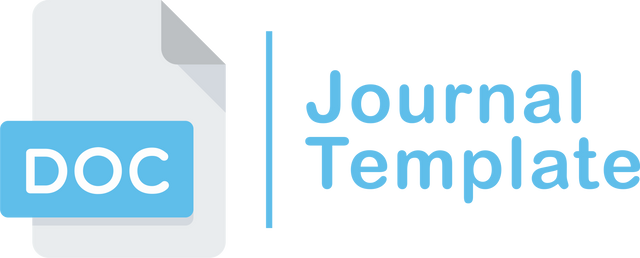Focus And Scope
Global Synthesis in Education(GSE) is an interdisciplinary publication dedicated to publishing original research and written works on education for international audiences of educational researchers. The Global Synthesis in Education Journal aims to provide a scholarly forum for understanding the field of education and plays a crucial role in promoting the transfer of knowledge, values, and skills from one generation to the next. Additionally, the journal strives to make evaluation and research methods and contents in education available to teachers, administrators, and research workers. The journal covers a diverse range of topics, including child development, curriculum, reading comprehension, philosophies of education, and educational approaches, among others.
Educational Approaches
- Asset (seeing education as an asset)
- Blended Learning
- Catalytic Role
- Change Agents
- Character Education
- Classical Education
- Collective Education
- Common Core Change
- Competency Based Education
- Constructive Struggling
- Constructivist Learning
- Degree Qualifications
- Disrupting Innovation
- Economic Empowerment
- E-Learning
- Expeditionary Learning
- Finnish Education
- Flexible Learning
- Flipped Classroom
- Flipped Learning
- Free Post-Secondary Education
- Gamification
- Global View
- Ground Up Diversity
- Herbert Stein’s Law
- High-Quality Teachers
- Hip-Hop Education (HipHopEd)
- International Objectives
- Invisible Structures
- Learning with Technologies
- Lesson Study
- Mobile Education
- MOOCs & eLearning
- Moral Education
- Navdanya
- Open Innovation
- Personalized Education
- Problem Based Learning
- Process Oriented Guided Inquiry Lessons (POGIL)
- Project Based Learning (PBL)
- Readiness Testing
- Reality Pedagogy
- Religious Education
- School in the Clouds
- Sharing Voices
- Smart Capital
- Social Networking
- Social Status
- Social Support Strategy
- Start-up Education
- Student Centred Learning
- Talking Education
- The Bologna Process
- Underground Education
- Vocational Training
Pedagogy
- Alternative education
- Democratic school
- Progressive education
- Context-based learning
- Design-based learning
- Experiential education
- Experiential learning
- Inquiry-based learning
- Kinesthetic learning
- Montessori education
- Open learning
- Open classroom
- Personalized learning
- Problem-based learning
- Problem-posing education
- Project-based learning
- Service-learning
- Slow education
- Student-centred learning
- Waldorf education
Curriculum
- A scope and sequence for each level that provides a big picture view of the curriculum and describes the units to be taught;
- A series of instructional units that delve into more detail than the big picture overview in the scope and sequence;
- Guidance for teacher(s) using the curriculum; and
- Sequenced lesson plans that make up instructional units.
Reading and Writing
- Computer literacy;
- Cross-cultural studies;
- Developmental and acquired disorders of reading and writing
- Models of reading, writing and spelling at all age levels;
- Orthography and its relation to reading and writing;
Teaching English as Second/Foreign Language
Teaching English as a second language (TESL) refers to teaching English to students whose first language is not English, usually offered in a region where English is the dominant language and natural English language immersion situations are apt to be plentiful.
- Applied linguistics
- CELTA (Certificate in English Language Teaching to Adults)
- EF Standard English Test, open-access standardized English assessment tools
- English as a second or foreign language
- English language learning and teaching
- English language learning and teaching
- English Opens Doors
- Glossary of language teaching terms and ideas
- Language education
- Language education
- List of countries by English-speaking population
- Second language acquisition
- Second language acquisition
- Sociolinguistics
- Teaching English as a second language
- Teaching English as a foreign language
- Test of English as a Foreign Language known as TOEFL
- Trinity College London ESOL
Informal Education
Informal Education is a general term for education that can occur outside of a structured curriculum. Informal Education encompasses student interests within a curriculum in a regular classroom, but is not limited to that setting. It can refer to various forms of alternative education, such as:
- Autodidacticism (Self-teaching),
- Informal learning
- Unschooling or homeschooling, and
- Youth work,
Open Access Policy
This journal provides immediate open access to its content on the principle that making research freely available to the public supports a greater global exchange of knowledge.
Editorial Policy
As an initial consideration, all manuscripts submitted for review are expected to be free from language errors and must be written and formatted strictly by following the latest edition of the APA style. Manuscripts that are not entirely written according to APA style and/or do not reflect an expert use of the English language will not be considered for publication and will not be sent to any of the journal reviewers for evaluation. It is completely the author’s responsibility to comply with the rules and check for any errors. Thus, all necessary actions should be taken by the author(s) before a manuscript is submitted to the journal.
We highly recommend that non-native speakers of English have manuscripts proofread by a copy editor before submission. During submission, a note from a copy editor may significantly reduce the review time of your manuscript. However, proof of copy editing does not guarantee acceptance of a manuscript for publication in the Journal of Hunan University Natural Sciences.
Global Synthesis in Education(GSE) publishes only original scholarly works. We do not accept and will not publish manuscripts which are based on an author's previous work. Please do not submit your manuscripts simultaneously or separately to both Global Synthesis in Education(GSE) and to another journal. In such cases the responsibility solely rests with the author(s).
















